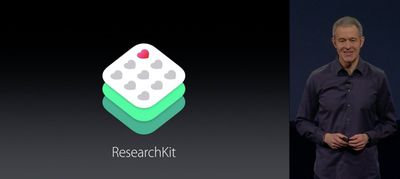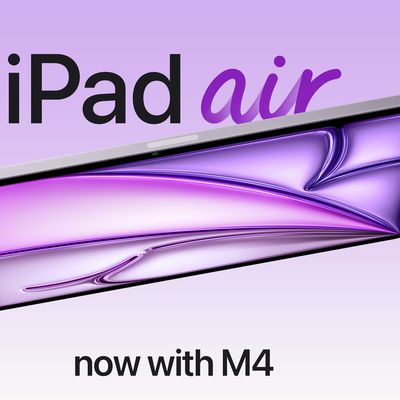Apple SVP of Operations, Jeff Williams, today announced "ResearchKit", a new open source software framework in the vein of HomeKit and HealthKit that will turn an iPhone into "powerful diagnostic tools for medical research." The new software aims to assist doctors and scientist gather data at a faster and more accurate rate via the accessibility of the iPhone.
Williams mentioned multiple conditions that ResearchKit will be aimed at, including: Parkinson's, Diabetes, Cardiovascular disease, Asthma and Breast cancer. Apple also promised it "will not see your data" when reiterating on Privacy of the new ResearchKit app.

"iOS apps already help millions of customers track and improve their health. With hundreds of millions of iPhones in use around the world, we saw an opportunity for Apple to have an even greater impact by empowering people to participate in and contribute to medical research,” said Jeff Williams, Apple’s senior vice president of Operations. “ResearchKit gives the scientific community access to a diverse, global population and more ways to collect data than ever before.”
When given permission, ResearchKit will attain user data like weight, blood pressure, glucose levels and asthma inhaler use, most measured thanks to third-party devices and apps. The service will also give researches a more streamlined experience in recruiting and gaining data from study participants, allowing users to answer surveys and input data right from the app.
ResearchKit will be released next month, and those first five apps mentioned by Williams at the conference are going to be available today.
Follow the rest of our March 2015 event coverage for the latest Apple Watch information.



















Top Rated Comments
That's a problem with a lot of research. We manage to make it work. You can easily check for data inconsistencies with statistics.
Some of that information is static, but for the rest, it's likely going to be dependent on being fed from devices synced to the phone.
Think of it this way... HealthKit enables the phone to collect data from manual input as well as from devices it links to. This data is shared (with permission) to other apps for your use. We already see some hospitals and clinics using apps that (again, with permission) use this information to monitor their patients, both to keep a running record on their conditions as well as to generate alerts if readings look dangerously unusual.
ResearchKit takes this one step further - your medical info is (once more, with permission, and presumably anonymized) uploaded into research databases, which allows researchers to see the characteristics of the population at large, which they can use as a baseline to compare subjects against, find potential study participants (*), look for correlations on factors that might not be otherwise obvious, etc.
(*) I have to assume there will be some way to allow researchers to contact you for this purpose even though you remain anonymous. Shouldn't be too hard, and Apple is making a lot of noise vis-a-vis info security, so they'd have to address that issue.
How good is the information going to be if it is going to be reliant on people to be consistent in entering their information. It is a great idea but its only useful if enough people are being constant with the information they are putting into it. Otherwise its just a bunch of random information that means nothing.